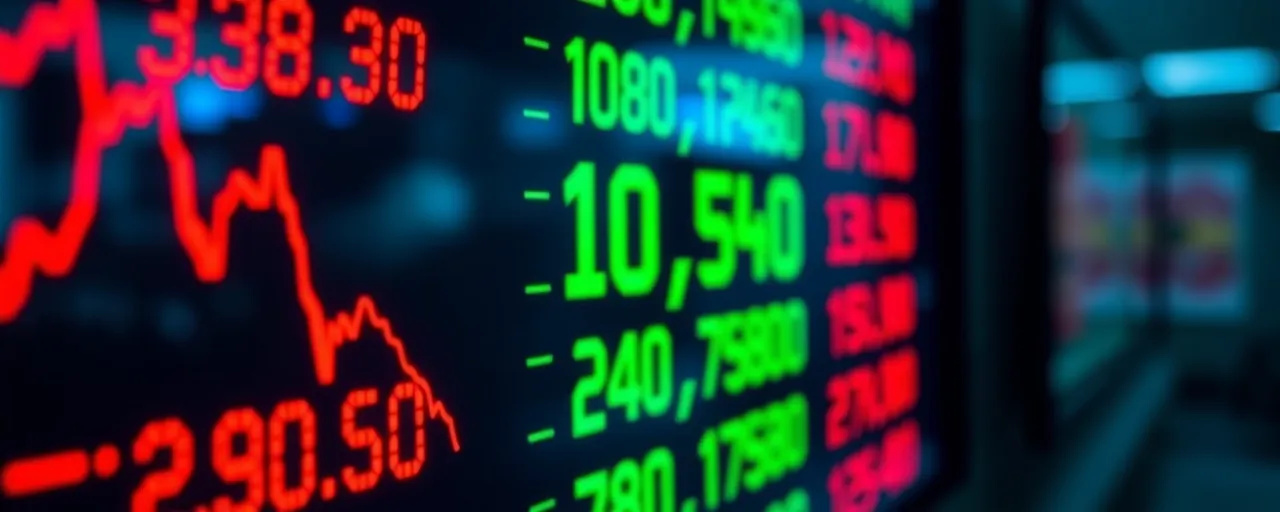The Acronym That Defines a Presidency
In May 2025, Financial Times columnist Robert Armstrong gave the world ‘TACO’—Trump Always Chickens Out. The term captures a pattern that defines President Trump’s trade policy: loud tariff threats, like 145% duties on Chinese electronics or 50% levies on EU goods, spark market panic, only to dissolve into delays or reductions. Stocks dip, then soar, as seen in the 2.1% S&P 500 spike after reversals. This cycle reveals a presidency built on bluster, not backbone, with ordinary families left to absorb the fallout.
Consider the evidence. Trump’s 90-day suspension of Chinese tariffs and the postponed EU duties from June to July follow a clear script: announce, retreat, repeat. These flip-flops aren’t strategic genius; they’re concessions to Wall Street’s sway. The real cost lands on consumers, facing a 2.2% price increase—$3,600 per household annually. For those new to policy debates, this means pricier groceries, cars, and gadgets, all tied to a leader who folds under pressure.
This matters deeply. Advocates for economic fairness, like those at the Center for American Progress, argue that such volatility erodes public trust. They have a point: when a president’s promises unravel, faith in governance frays. Families deserve policies that deliver stability, not chaos driven by market whims. Can we accept a leadership style that prioritizes headlines over results?
Humor like ‘TACO’ carries weight. It’s more than a Wall Street jest; it’s a tool to expose weak leadership. Voices in progressive media, from columnists to comedians, must harness this clarity to demand accountability. The goal isn’t just to laugh—it’s to spotlight the human toll of a presidency that retreats from its own plans.
Some, like Office of Management and Budget Director Russell Vought, argue that mocking tariff reversals undermines the president’s authority. They claim critics weaken the executive’s ability to govern. This perspective falters. True authority comes from delivering for the public, not dodging scrutiny with empty threats. Calling out failed tariffs strengthens democracy, ensuring leaders answer to the people, not just financial elites.
Families Pay for Trump’s Trade Missteps
The numbers tell a grim story. Since March 2025, Trump’s tariffs—25% on autos, 145% on Chinese electronics, and a 10% universal duty—have pushed the average effective tariff rate to 21.9%, a high not seen since 1909. Retailers like Walmart and manufacturers are scrambling for exemptions, aware of the economic strain. Consumers face a 2.2% price surge, translating to $3,600 less per household for essentials like housing or education.
This hits hardest at the checkout line. Policy experts at the Economic Policy Institute note that tariffs disproportionately burden low-income families, who spend more of their income on goods. Trump’s suspensions, like the 90-day pause on Chinese duties, offer no lasting relief—they merely prolong uncertainty, leaving families and businesses in limbo.
Wall Street’s influence looms large. CEOs and hedge-fund leaders, alongside Treasury Secretary Bessent, have pressured the White House to soften tariffs. The ‘TACO trade’—betting on Trump’s retreats—has turned his indecision into a Wall Street windfall. This dynamic exposes a presidency beholden to financial interests, not the workers it claims to represent.
Certain manufacturing unions defend tariffs, arguing they protect American jobs. Their case has merit but overlooks the broader harm: tariffs disrupt supply chains, inflate costs, and invite retaliation, as evidenced by WTO challenges. While the UK trade deal and USMCA retention are steps forward, they don’t offset the economic toll. Why pursue a policy that burdens families more than it benefits them?
Public opinion aligns with this concern. A 2025 Pew survey finds 65% of Americans see unchecked executive power as risky. An Annenberg poll shows two-thirds oppose bypassing courts or Senate consent. People want accountability, not a president who wields trade policy like a prop. Tariffs should serve the public good, not fuel market games.
Sharpening Satire for Accountability
Humor has long been a progressive ally, from ‘Saturday Night Live’ to viral TikTok skits. But ‘TACO’ demands more than quips. Shows like ‘Full Frontal’ must blend wit with policy critique, as Vox analysts urge, to avoid the trap of softening Trump’s failures. Bill Maher’s Oval Office dinner drew backlash for cozying up to power, a reminder that satire must challenge, not charm.
There’s a risk in overusing terms like ‘TACO.’ Scholars warn that catchy acronyms can oversimplify, alienating those seeking deeper policy discussion. Progressive voices must strike a balance, using humor to draw attention to the $3,600 hit to families while grounding it in data. The aim is clarity, not just catharsis.
Building a Fairer Trade Future
Trump’s tariff retreats, encapsulated by ‘TACO,’ reveal a presidency adrift. His policies, shaped by Wall Street’s clout, leave families grappling with higher costs. Advocates for working people must channel this frustration into demands for trade policies that prioritize stability and fairness.
The way forward requires action. Pursue trade agreements that protect jobs without inflating prices. Reinforce checks on executive power, backed by 78% of Americans, per Pew. And refine progressive satire to expose policy failures with precision. Can we meet this moment? It hinges on turning critique into policies that put families first.
‘TACO’ is more than a jab—it’s a call to rethink leadership. Families deserve a president who delivers results, not one who buckles under pressure. By demanding accountability, we can forge a future where trade policy serves the public, not just the powerful.
